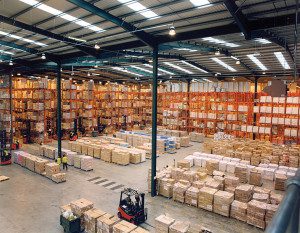 The need for freight forwarding in the supply chain results from the complexities that often arise during the transportation of products, especially across borders. If you have goods to transport from point A to point B, a freight forwarder will find the best routes, specific couriers and even identify the most suitable mode of transport depending on your needs. They are knowledgeable and duly experienced at their work so will know how to handle technological, legal, social as well as political issues that may arise over the course of transportation.
The need for freight forwarding in the supply chain results from the complexities that often arise during the transportation of products, especially across borders. If you have goods to transport from point A to point B, a freight forwarder will find the best routes, specific couriers and even identify the most suitable mode of transport depending on your needs. They are knowledgeable and duly experienced at their work so will know how to handle technological, legal, social as well as political issues that may arise over the course of transportation.
Basically the freight forwarder handles the following activities:
- Consolidating and distributing shipment
- Processing necessary documentation
- Selecting the most suiting means of transportation
- Selecting the best routes for transportation
- Acts as the intermediary in customs processes
- Assumes control of parcels
- Arranges for cargo insurance
- Facilitates payments of parties involved
How freight forwards contribute to overall efficiency of the supply chain
Automation of a number of activities
Most freight forwards now automate most of their activities which allows operational management to focus on value adding activities such as attending to customers, handling exceptions and working towards timely and accurate invoicing. All these will go towards reducing operational costs which increases profitability. For example, most freight forwarding service providers now deal with cost analysis at shipment level which allows sales persons to determine profit margins early on and make shrewd decisions. Clients are therefore able to maximize on shipment earnings. Since the processes are also less laborious, you can expect to grow the business at a much reduced cost.
Quality customer service
Since working with customers is actually part of their work, most freight forwarders have high quality customer service programs promising timely, reliable and accurate delivery of services. You want to be assured of safe delivery of your shipment and that is exactly what these forwarders strive to do. High end providers now offer single-view of every shipment which not only improves customer satisfaction but also enables better risk management and personalization of services.
Cutting on costs
Shipment can be costly. What forwarders do is to cut out unnecessary processes or activities that add little to no value to the transportation process. They do this by streamlining processes and doing away with mundane, repetitive processes to maximize profit margins. For example, many forwards now inherit costing from client’s quotations leading to greater accuracy. Additionally, these forwarders do leverage on best trade practices and further maximize on productivity by obtaining a highly efficient workforce.
Improved risk management
The volatility of the logistics market, new regulatory guidelines and ever-changing client needs make it important for forwarding agents and customers in general to share concerns over risks in order to avoid being penalized or being put out of business. For instance, submitting inaccurate data can usually result in serious penalties. Great freight forwarders provide single points of data entry which makes it possible for information to smoothly flow throughout the supply chain without need for re-entry. Forwarders can also assess the risk exposure of each shipment and make necessary security arrangements in time.
Summary- freight forwarding
Freight forwarding has always fostered good relationships and collaboration between exporters, importers, carriers, agents, the forwarders themselves and customers. This is achieved through logistics community networks and exchange of information anytime, anywhere. When all the stakeholders are on the same page, you can only expect work to proceed faster and with great efficiency.


